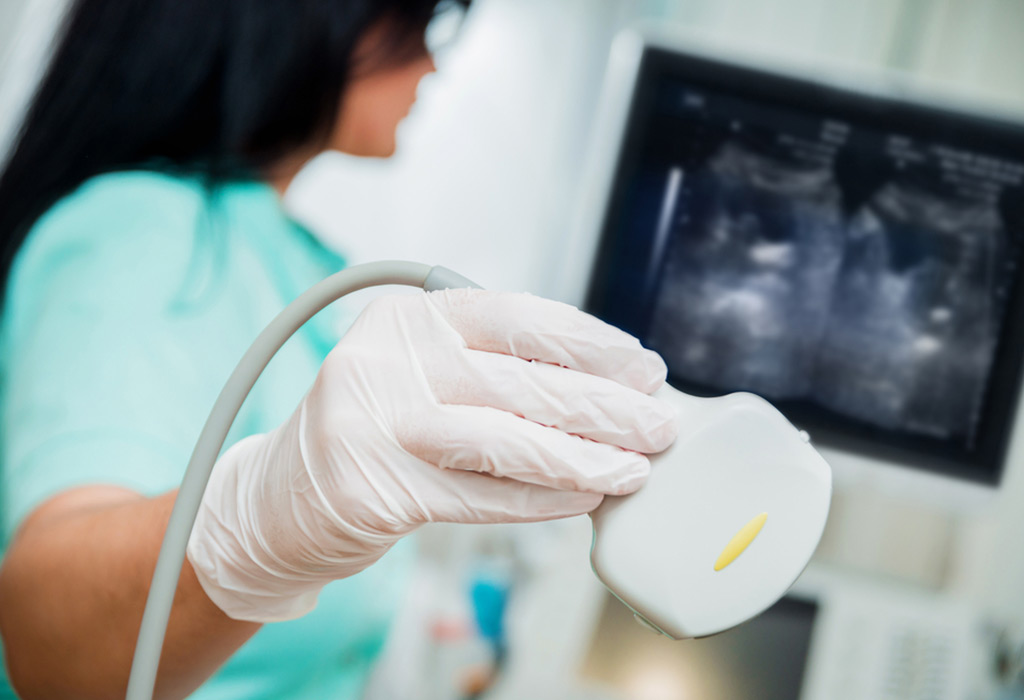HELLP Syndrome in Pregnancy: Causes, Symptoms, & Treatments
Pregnancy is one of the most exciting (and nerve-wracking) experiences of a woman’s life. Along with the joy of bringing a new life into this world, pregnancy also comes with certain unwanted symptoms, such as morning sickness, fatigue, and nausea. Pregnancy brings about a lot of changes in your body, and one of the not-so-common changes is a life-threatening disorder called HELLP syndrome, which is a liver and blood clotting disorder. This condition can especially occur if a woman has or is at risk of preeclampsia. HELLP syndrome in pregnancy is a serious complication that requires prompt medical attention to ensure the safety of both the mother and the baby. Understanding its symptoms and early warning signs is crucial for timely diagnosis and treatment.
What Is HELLP Syndrome?
What’s HELLP syndrome meaning? An extremely rare condition, HELLP syndrome is a disorder of the liver and blood. Although rare, this condition is serious and can be fatal if left untreated. HELLP is an acronym for three conditions, namely, Hemolysis (H), Elevated liver enzymes (EL), and Low platelet count (LP). The condition itself is a variation or a side effect of another dangerous condition called preeclampsia. HELLP is considered life-threatening to both the baby and the mother and should be treated as an emergency. HELLP basically causes the following illnesses to occur all at once:
- Red blood cells break down and are destroyed because of a condition caused by haemolysis.
- The enzymes in the liver are elevated and signal trauma or failure of the liver itself.
- The clotting of blood becomes increasingly difficult due to low platelet counts
HELLP syndrome is extremely rare and is known to affect only 1% of women. Women with preeclampsia can have this illness manifest much more frequently, with almost 20% known to contract the illness. It is important to note that this condition can be passed onto the children or from parents or ancestors, .i.e, it can be genetic. But one must note that it is not necessary that everyone who has a genetic predisposition will develop HELLP.
What Puts Mothers at the Risk of Developing HELLP Syndrome?
While there are no known causes of this syndrome, it is believed that the following conditions present themselves as risk factors to develop this syndrome:
- Genealogy – The condition is known to be passed down through genetics.
- A Weak Liver – The likelihood of HELLP manifesting increases if the liver has suffered any trauma or weakness.
- Preeclampsia – HELLP can be caused due to side effects or complications of preeclampsia.
If the mother’s age is quite advanced during pregnancy, or blood pressure is poorly maintained, or the mother has had a previous history of preeclampsia, these could also be possible risk factors.
How Common Is HELLP Syndrome During Pregnancy?
HELLP syndrome is considered a relatively rare complication of pregnancy, occurring in approximately 0.1% to 0.6% of all pregnancies. However, it is more common in women with preeclampsia, affecting about 10% to 20% of those diagnosed with severe preeclampsia. The condition typically develops during the third trimester, although it can occasionally occur postpartum. While rare, HELLP syndrome is a serious disorder that requires immediate medical attention to prevent complications for both the mother and baby.
Symptoms of HELLP Syndrome
The first step towards treating this illness is by understanding the symptoms of HELLP syndrome during pregnancy:
- Fatigue
- Nausea
- Frequent or infrequent abdominal pain near the liver (underneath your ribcage on the right side of your body)
- Unusually easy bruising of the body
- Excessive bleeding that happens unusually easily
- Blood from wounds that are not clotting
- Jaundice
At first, HELLP syndrome symptoms can mimic symptoms of the flu. Other symptoms are extremely similar to preeclampsia. If these symptoms begin to manifest, you must inform your primary medical care executive immediately.
Difference Between HELLP and Preeclampsia
Although HELLP syndrome and preeclampsia are related, they are distinct conditions with differences in their presentation, diagnosis, and impact on pregnancy.
1. Nature of the Condition
- Preeclampsia: A pregnancy-related hypertensive disorder characterized by high blood pressure and protein in the urine.
- HELLP Syndrome: A severe complication of pregnancy involving hemolysis (breakdown of red blood cells), elevated liver enzymes, and low platelet count.
2. Symptoms
- Preeclampsia: Common symptoms include swelling, high blood pressure, headaches, and vision changes.
- HELLP Syndrome: Symptoms may include nausea, vomiting, upper right abdominal pain, fatigue, and sometimes high blood pressure, but it can occur even without traditional preeclampsia symptoms.
3. Timing
- Preeclampsia: Usually develops after 20 weeks of pregnancy or postpartum.
- HELLP Syndrome: Most commonly occurs during the third trimester but can also develop postpartum.
4. Diagnosis
- Preeclampsia: Diagnosed based on elevated blood pressure and proteinuria (protein in urine).
- HELLP Syndrome: Diagnosed using blood tests that reveal hemolysis, high liver enzymes, and a low platelet count.
5. Treatment
- Preeclampsia: Management may involve monitoring, medications to control blood pressure, and delivery as the definitive treatment.
- HELLP Syndrome: Requires immediate medical attention, often necessitating early delivery, blood transfusions, and supportive care.
How Is This Condition Diagnosed?
Due to the similarities of this condition to other illnesses, doctors may require extensive testing to diagnose HELLP. To begin with, doctors will conduct a physical exam, during which they will look for signs of problems with the liver, by checking for inflammation around the ankles, and tenderness or pain near the right side of the abdomen. Once this is done, they may proceed to check your urine for protein, as protein in your urine can be a sign of preeclampsia as well as HELLP. Combined with a routine test of your blood pressure and blood tests to ascertain the red blood cell counts and platelet levels, doctors may additionally do a blood test called LFT or liver function test to evaluate the health of the liver and its enzymes. Finally, due to this condition primarily manifesting in the third semester, doctors may do an ultrasound and a nonstress test to ascertain the well-being of your baby. If they feel that the results aren’t conclusive, doctors may run a biophysical profile to confirm the health of your child.
An important note: Although the condition mainly begins to manifest in the third semester, HELLP can afflict women at any point in the pregnancy or even after childbirth.
Treatment for HELLP Syndrome
HELLP can be a life-threatening condition for the mother and baby. Therefore, it is imperative that you consult a medical professional as soon as possible if diagnosed with this condition. Commonly, the only treatment for this condition would be to deliver the child. Corticosteroids can be used in early pregnancy to help the baby’s lungs mature. Doctors will take a call on the method of delivery depending on how far along you are in your pregnancy cycle. In some cases, doctors may feel the need to either forcefully induce labour or even perform a C-section.
In the case of eclampsia, doctors may medicate you to bring down your blood pressure in order to prevent a seizure. In this situation, your platelets are extremely low; the medical team may perform a platelet transfusion to ensure clotting takes place. This is because a low platelet count could put your life at risk during delivery.
Doctors will monitor your condition closely upon admission. Delivery may be scheduled if you are already 34 weeks pregnant. If not, the doctors may continue to monitor your vitals and keep an eye on your condition and your baby’s condition for up to 72 hours.
Complications of HELLP Syndrome
This condition can be extremely dangerous if not treated in time. The effect of HELLP syndrome on the baby’s development can be drastic, as much as it is life-threatening to the mother. This is one of the reasons why it is considered vital to seek expert medical care and allow the doctors to monitor both your and your foetus’ health during the pregnancy. Some of the complications that the syndrome can give rise to are:
- Kidney failure
- Respiratory difficulties
- Liquid or fluid in the lungs
- Stroke
- Clotting problems – Abnormal clotting is considered extremely dangerous during pregnancy.
- Liver failure
- Problems with the circulation of blood and supply of blood to the kidney and liver.
- Accumulation of blood in the liver
Babies born due to forced labour or C-section at a much earlier date than the estimated delivery time could be at risk for various pre-term baby conditions. It is critical, in this situation, to communicate with your doctor about the steps needed to care for your prematurely born baby.
Long-Term Outlook for Women With HELLP Syndrome
The effects of postpartum HELLP syndrome on women can be minimal if caught early. This could lead to the possibility of a complete recovery. The major complications, unfortunately, are faced by the baby. In the case of HELLP, most babies are delivered prematurely. This puts them at risk of developing numerous disabilities and illnesses and may even leave them with a weak immune system.
Babies born extremely early may be kept in the NICU. In some cases, they may be kept in incubators to ensure life support. Most babies born earlier than 34 to 37 weeks are kept under observation for a period after delivery to ensure the greatest care is taken for their survival.
Can HELLP Syndrome Be Prevented?
One of the most unfortunate things about this condition is that there’s no way to prevent it. The most you can do is follow up with appointments that are scheduled with the doctor and ensure that the precautionary measures suggested by the doctor for prenatal health are implemented. It is important to communicate openly with your partner about this condition, educate yourselves, and talk to your doctor to learn about the options that are available to you. Even in the best of circumstances, there is no evidence of any method that guarantees prevention. In fact, if the mother is diagnosed with HELLP during the first baby’s delivery, chances are that the condition will return for future pregnancies as well.
FAQs
1. Can HELLP syndrome occur without high blood pressure?
Yes, while high blood pressure is a hallmark symptom of preeclampsia, HELLP syndrome can occur without significantly elevated blood pressure. Some women with HELLP pregnancy syndrome may not show the typical signs of high blood pressure, which can make it harder to diagnose.
2. Can HELLP syndrome develop after delivery?
Yes, although HELLP syndrome is most commonly diagnosed during the third trimester, it can also develop after delivery, typically within 48 hours postpartum. Postpartum HELLP syndrome is rare but serious and requires immediate medical attention.
3. Can HELLP syndrome affect future pregnancies?
Yes, women who have experienced HELLP syndrome during one pregnancy may be at a higher risk of developing it again in future pregnancies. However, it is not guaranteed, and proper prenatal care and monitoring can help manage potential risks.
4. Is HELLP syndrome more common in certain demographics?
HELLP syndrome is more commonly seen in women who are older, have a history of preeclampsia, or are carrying multiple babies. It is also somewhat more frequent in women with certain pre-existing health conditions such as diabetes or hypertension. However, it can affect women of any age and health background.
For support during this difficult time, you can check with your doctor about support groups and join the same. You should also ensure that your partner and you schedule appointments with psychiatrists and psychologists, as counselling can help prepare for the struggles to come. This can also aid in lessening the mental and emotional stress you may undergo during this time. Stress can always complicate any medical condition. It is also important to communicate openly with your partner about any physical discomfort and to educate any other caregivers about the risks, precautions and care required during this time.
References/Resources:
1. HELLP Syndrome; Cleveland Clinic; https://my.clevelandclinic.org/health/diseases/21637-hellp-syndrome
2. What IS HELLP Syndrome?; Preeclampsia Foundation; https://www.preeclampsia.org/hellp-syndrome
3. HELLP Syndrome during Pregnancy; Penn Medicine Lancaster General Health; https://www.lancastergeneralhealth.org/health-hub-home/motherhood/your-pregnancy/hellp-syndrome-during-pregnancy
4. Preeclampsia; Mayo Clinic; https://www.mayoclinic.org/diseases-conditions/preeclampsia/symptoms-causes/syc-20355745
5. Khalid. F, Mahendraker. N, Tonismae.. T; HELLP Syndrome; National Library of Medicine; https://www.ncbi.nlm.nih.gov/books/NBK560615/
6. HELLP Syndrome; Yale Medicine; https://www.yalemedicine.org/conditions/hellp-syndrome
7. HELLP Syndrome – Causes, Symptoms & Treatment; American Pregnancy Association; https://americanpregnancy.org/healthy-pregnancy/pregnancy-complications/hellp-syndrome/
Also Read:
Mirror Syndrome during Pregnancy
Couvade Syndrome in Pregnancy
Carpal Tunnel Syndrome in Pregnancy
Irritable Bowel Syndrome (IBS) in Pregnancy
Was This Article Helpful?
Parenting is a huge responsibility, for you as a caregiver, but also for us as a parenting content platform. We understand that and take our responsibility of creating credible content seriously. FirstCry Parenting articles are written and published only after extensive research using factually sound references to deliver quality content that is accurate, validated by experts, and completely reliable. To understand how we go about creating content that is credible, read our editorial policy here.




































